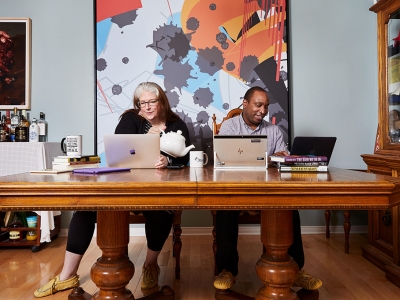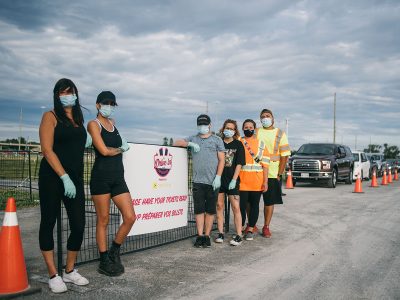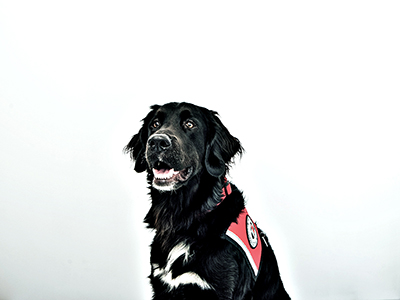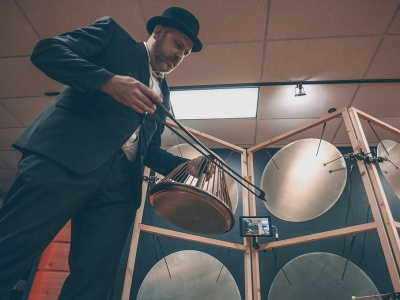By Kara Louttit
Photos by Melody McKiver/Walking With Our Sisters
It was an unusually warm fall day in September 2015 when I travelled to Ottawa from Thunder Bay for the first time since the Idle No More protests. Over the ensuing few days, I helped transform the Carleton University Art Gallery (CUAG) into a space that would hold ceremony.
The gallery was hosting Walking With Our Sisters (WWOS), a commemorative art installation that honoured the lives of missing and murdered Indigenous women, girls and two-spirit people.
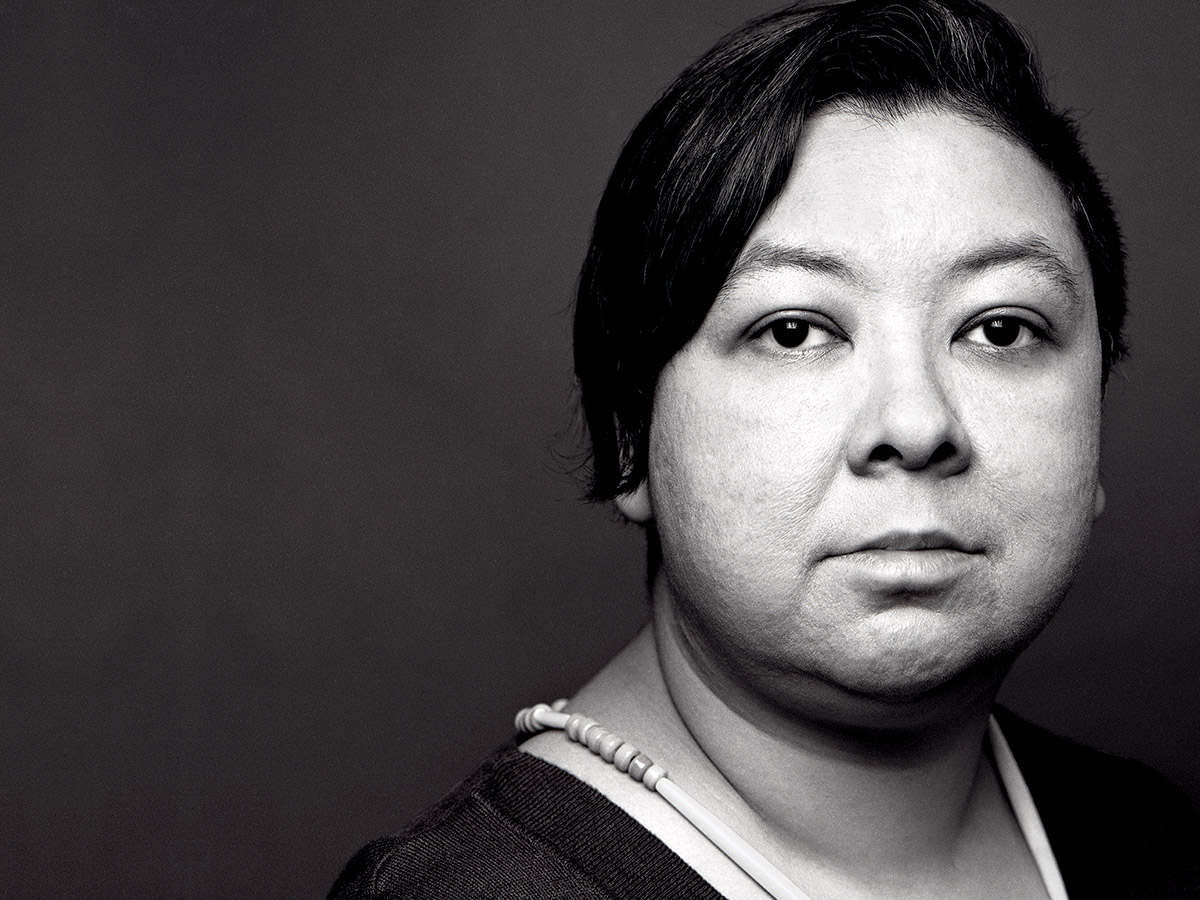
Kara Louttit (Photo by Robert Proulx)
The installation was made up of more than 1,000 moccasin vamps — the intricate, decorated tops of moccasins — laid out on deep red cloth. Visitors walked along a path of red, with the vamps symbolizing those who were missing.
As a member of the WWOS national collective, I was at CUAG to provide logistical and emotional support to local organizers. It never occurred to me that I would be walking back onto campus three years later as a student.
Growing up in Thunder Bay and Val d’Or, Que., the importance of education was imparted to my siblings and me as children, although I didn’t take that message seriously in my younger years.
I was fortunate to be part of the first generation in my family that wasn’t forced to attend residential school. My father, and his father before him, are both residential school survivors who went on to post-secondary education. My own route to higher education wasn’t quite so linear.
High school was tough. In fact, I never finished it. Struggling with my queer Indigenous identity, along with family dysfunction, began when I was a teenager and fuelled addictions throughout my 20s. Today, I can clearly see how intergenerational trauma impacted my life in ways that I was unable to cope with as a young adult.
In spite of my addictions, I understood that I had to work twice as hard as others to compensate for my lack of education. I had a knack for finding unique jobs. I worked for software companies, political organizations, Indigenous art associations and non-profit community groups. Which is how, after hitting rock bottom, fresh out of a treatment program, rebuilding my life, I found myself in Thunder Bay working within the criminal justice system.
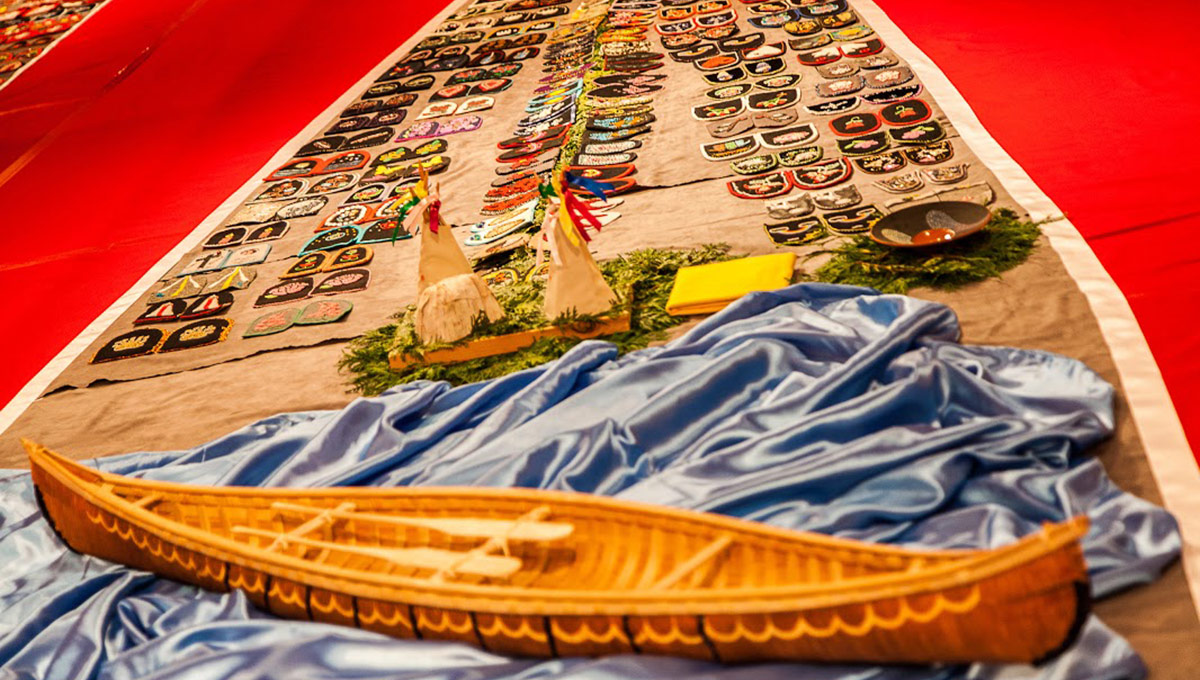
A Long and Winding Path to Higher Education
As a Gladue writer, I worked with Indigenous people who had been convicted of crimes, writing reports that were submitted to the courts for sentencing considerations. Gladue reports are a response to the Supreme Court’s ruling in R. v. Gladue, a 1999 decision which recognized that Indigenous peoples face racism and systemic discrimination leading to overrepresentation in courts and prisons.
My role was to provide historical context to a client’s life circumstances by connecting their experiences to systemic factors. My — and my family’s — familiarity with residential schools and addictions helped me connect with clients.
This understanding of how colonialism continues to harm Indigenous communities sent me on the journey that I’m on now.
In fateful fashion, volunteering for WWOS in Ottawa sparked a long-distance relationship that had me moving to the city the following year. I continued to write Gladue reports until a heavy case load and the weight of carrying all those horrific stories of trauma led to burnout. Still, doing that work had given me a sense of responsibility; I wanted to do more to help end Indigenous overrepresentation in the justice system.
In 2018, I enrolled in the Indigenous Enriched Support Program (IESP) at Carleton, and I’m now a second-year student in the Bachelor of Law honours program. The IESP — and hard work — are the reasons I’ve been able to overcome my own challenging past and find success at school.
But I also believe that people and opportunities come into one’s life at the right time. That first step onto campus for WWOS was the start of a new chapter for me, and it has put me on a path that will allow me to help others in a powerful way.
Thursday, January 9, 2020 in Short Reads
Share: Twitter, Facebook
